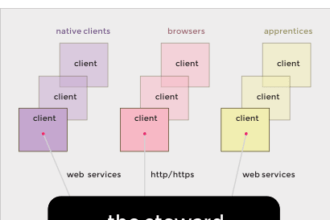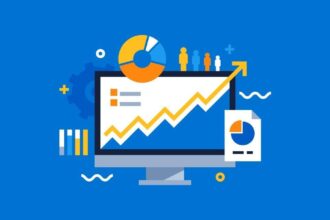There’s no getting around it: computer science and big data have been woven into the fabric of modern business. In fact, by the end of 2017, 53% of companies had adopted big data, up from just 17% in 2015. Today, big data in business is a key part of monitoring how marketing efforts perform, getting an objective view of how customers are actually responding to a company’s product or service, and even streamlining a company’s everyday operations to save money.
Despite the fact that big data and computer science are so key to modern-day business success, many of us only know the bare minimum about how it all works. Although you may not want to be a data scientist, web developer, or IT manager, that doesn’t mean you can just sit back and let the professionals take over. It’s important to develop a holistic understanding of the topics, whether you run a company, a team, or just yourself. Why? Because it helps you to gain deeper insights into how your job fits into the company as a whole.
Plus, who knows—developing your knowledge could just lead you to a satisfying new career path!
1. Research History and Trends
Sometimes, looking at how far we’ve come in just a few decades, it can be hard to remember where we came from. Think about it: it’s only been around 80 years since the first computers were being developed—and those first computers could fill entire buildings!
Researching both the history of computing and big data and current trends is important for gaining a holistic view of computer science and data. For example, it’s easier to understand the “distributed ledger” technology of the blockchain if you know how centralized networks operate. Keeping up with trends is extremely important (and can be as simple as setting a Google Alert), but being able to anticipate the next trends is even better. Learning historical context will help you do that.
2. Have Internal Lunch & Learns
Whether you lead a team or not, initiating lunch & learns at your company can be a great way to help everyone in your organization gain a holistic view of big data and computer science. Bring the teams together for lunch, and have one or two people give a presentation each week. This could be on their expertise, or trends within their field so everyone can stay up to date. For example, the marketing department might show how big data helps with market research, consumer behavior, and automation. If you have a data scientist, they might give you a little insight into the questions they ask and how they operate.
3. Draw Knowledge from Examples
Sometimes, the easiest way to put the pieces together is to reverse-engineer how companies are using technology. One of the earliest examples of big data in action is UPS. The company has poured billions into big data to cut costs on drivers’ routes. Something as small as a one mile reduction in drivers’ daily routes can save the company up to $50 million. With that in mind, UPS used big data to create smarter routes that saved time, fuel, and carbon emissions. We can learn a lot just using these examples of big data in action.
4. Explore Additional Learning Opportunities
Computer science and big data are specialized fields that often require in-depth education or years of self-study. If you’re interested in going into more depth on these subjects, it may be worth taking a self-directed online course, going to educational events, or even going back to school for a career in computer science or big data. There are lots of great careers that can come from getting a bachelor’s or master’s in computer science. Demand is high and wages can be very attractive.
You Can’t Ignore the Computer’s Role in Business
Almost every business these days relies on computers for their day-to-day operations. If you’re not comfortable with data or computer science, now is the time to learn and get comfortable. It’s simply not an option to ignore the role of computers in business. The good news? There are so many ways to learn if you’re willing to put in the effort.
Remember: there are no rules to how you organize your career. Just because you studied accounting or art doesn’t mean you can’t pick up new skills and knowledge. If computer science and big data interest you, there’s a big opportunity there to learn, grow, and shape your career the way you want it.










